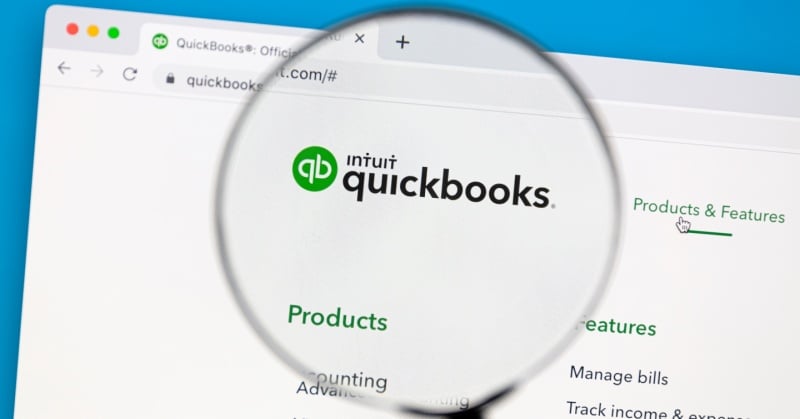Editor’s Note: This article is part of a series. View all the articles in this series here: QuickBooks Online Tips
If you've got the fundamentals of QuickBooks Online (QBO) down—sending invoices, categorizing transactions, and running basic reports—you’re off to a great start. But if you’re ready to elevate your bookkeeping skills, it’s time to dig deeper.
Advanced bookkeeping isn’t just about knowing where to click; it’s about understanding the underlying financial principles that drive your business. By using QuickBooks Online's features strategically, you can gain meaningful financial insights, improve accuracy, and make informed decisions that shape the future of your business.
Cash vs. accrual accounting: seeing the full picture
One of the most important accounting concepts to teach your clients is the difference between cash and accrual accounting.
- Cash basis: Income is recorded when money is received, and expenses are recorded when they are paid.
- Accrual basis: Income is recorded when the sale is performed (even if unpaid), and expenses are recorded when incurred (even if unpaid).
While many small businesses file taxes on a cash basis, switching to accrual for reporting and analysis provides a more complete financial picture. QuickBooks Online allows you to toggle between cash and accrual views in reports, giving you flexibility in how you analyze your data.
Managing unapplied payments: correcting timing mismatches
When running reports on a cash basis, you may notice a line item for “Unapplied Cash Payment Income” or “Unapplied Cash Payment Expense.” These appear when payments are recorded before the related invoice or bill.
While it may look like an error, it’s usually just a date mismatch that can be resolved by adjusting transaction dates so that payments happen on the same date or after their corresponding invoices or bills.
Fixing past mistakes: adjusting for cash vs. accrual
Mistakes happen, but how you correct them depends on your accounting method.
- For cash-based accounting, unpaid invoices and bills have no impact on financial reports. Incorrect transactions can simply be voided.
- For accrual-based accounting, corrections require offsetting entries because past transactions have already influenced financial statements.
To correct errors while maintaining accuracy, use these, dated in the current period:
- Credit memos for adjusting income
- Vendor credits for adjusting expenses
These adjustments ensure that your books stay historically accurate while reflecting the correct financial reality moving forward.

Unlocking the power of journal entries and zero dollar transactions
Journal entries are essential tools for making adjustments, especially when moving funds between balance sheet and profit and loss accounts. They help with:
- Setting up opening balances
- Managing prepaid expenses and deferred revenue
- Allocating overhead expenses
- Recording depreciation
However, excessive reliance on journal entries can make financial records harder to interpret. Instead, whenever possible, use QuickBooks Online’s standard forms (invoices, bills, checks) to capture transactions, as they automatically apply the correct accounting logic.
An alternative to journal entries is zero dollar transactions—a technique that allows you to use checks or sales receipts to adjust accounts while maintaining visibility in reports. This method enables product and service tracking, clearing accounts, and class allocations while keeping financial data clear and structured.
Prepaid expenses and deferred revenue: aligning income and expenses
Timing is everything when it comes to prepaid expenses and deferred revenue.
- Prepaid expenses (like annual insurance premiums) are paid in advance but should be recognized gradually over time.
- Deferred revenue (such as annual lump sum payments, or prepayments for a service) should be recognized as income only when earned, rather than when the payment is received.
To handle this properly, you can use:
- Journal entries or zero dollar transactions for manual tracking
- Automated Revenue Recognition in QuickBooks Online Advanced for businesses with complex recurring revenue
Managing these transactions correctly ensures that your financial statements accurately reflect your business activity, preventing misleading spikes or dips in profitability.

Job costing and overhead allocation: understanding true costs
To get a clear picture of profitability, it’s essential to accurately allocate expenses to specific jobs, customers, or classes.
By using journal entries or zero dollar transactions, you can distribute:
- Payroll wages
- Overhead expenses
- Other shared costs
This approach allows for more detailed financial analysis, helping you price jobs accurately, optimize resources, and maximize profit margins.
Mastering equity management: tracking ownership and contributions
Equity management is a crucial but often overlooked aspect of bookkeeping. Equity accounts track the owner’s stake in the business, including:
- Owner contributions (funds invested into the business)
- Owner distributions (money taken out for personal use)
- Retained earnings (accumulated profits or losses over time)
Each business structure (sole proprietorship, LLC, partnership, S Corp) has unique equity tracking requirements.
To keep track of business expenses paid with personal funds, create a “Bank of Bob” checking account. This way you can properly record all transactions from any of the owner’s funding sources, allowing you to keep track of details including Vendor, category, classes, and job costing. At the end of each month, use a transfer or journal entry to zero out the balance to Owner Investment to increase their equity in the company.
Closing out equity accounts annually helps maintain clean records of owner financial activity, ensuring clarity in tax filings and financial reporting.
Advancing your bookkeeping expertise in QuickBooks Online
These concepts represent just a glimpse of what’s possible when you go beyond basic bookkeeping in QuickBooks Online.
Understanding accounting principles, leveraging QuickBooks Online’s tools effectively, and implementing advanced strategies can transform the way you manage financial data and make business decisions.
Taking your bookkeeping skills to the next level isn’t just about keeping your books clean—it’s about gaining financial clarity, making smarter business decisions, and setting yourself up for long-term success.
.png?width=150&height=63&name=TWRlogo-regmark_blueblack%20(1).png)
.png)










Do you have questions about this article? Email us and let us know > info@woodard.com
Comments: